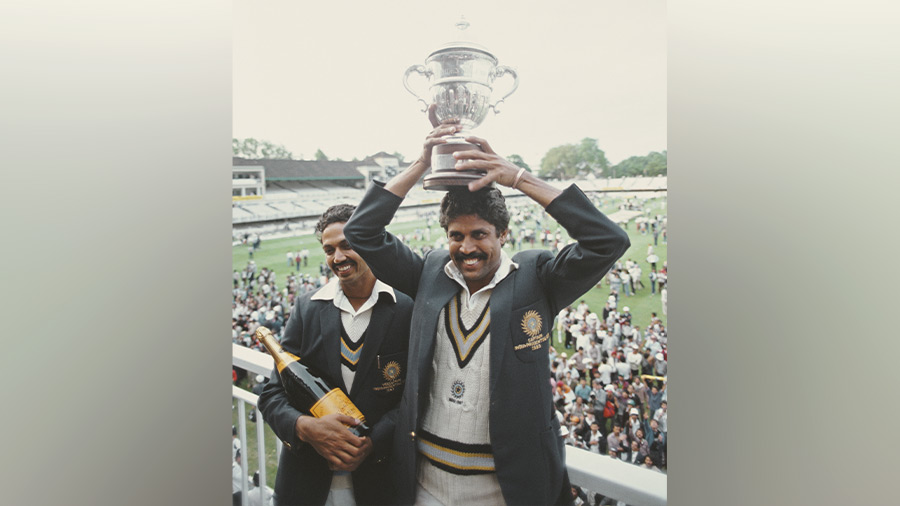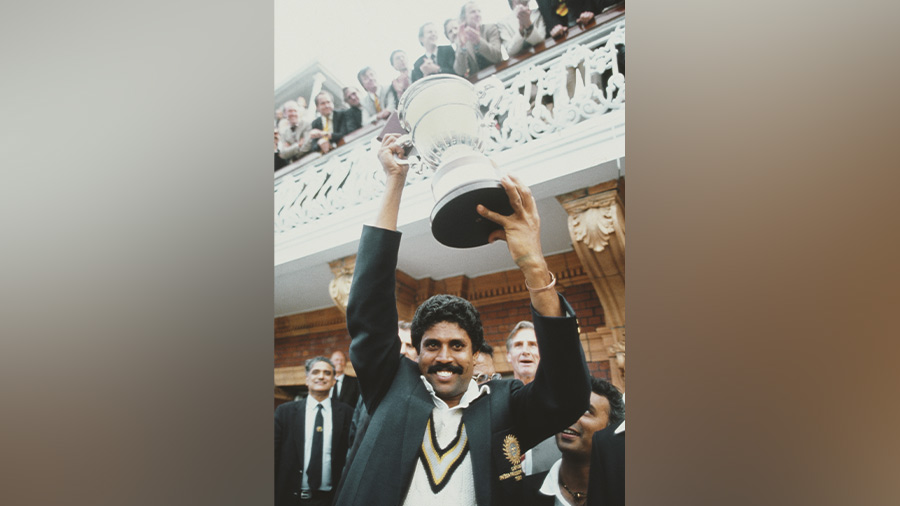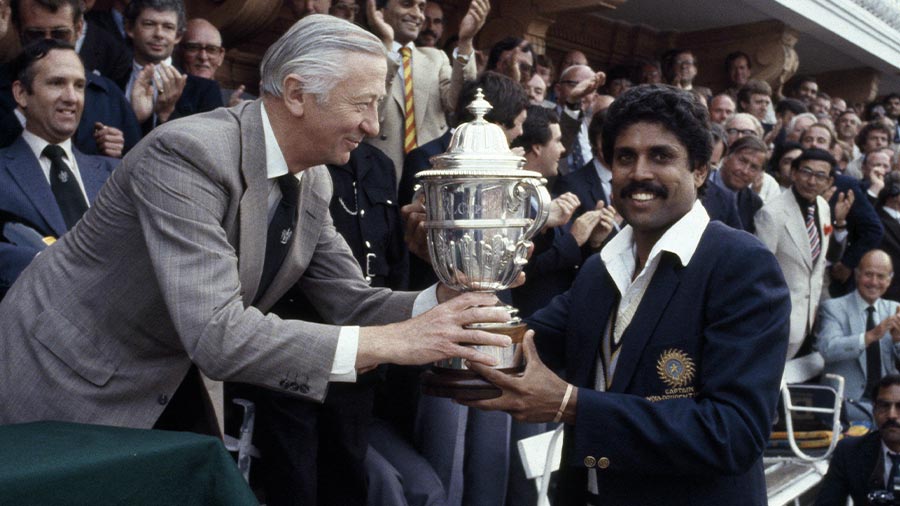India’s 1983 Prudential Cup, aka World Cup, win was not only a landmark in cricket history but also set off seismic shifts in society. To the 60-60 generation (ODI innings were 60 overs each then) growing up in Kolkata, the victory triggered passions that we were unacquainted with. Here are my memories of the day that changed our world.
Freedom at midnight reprised
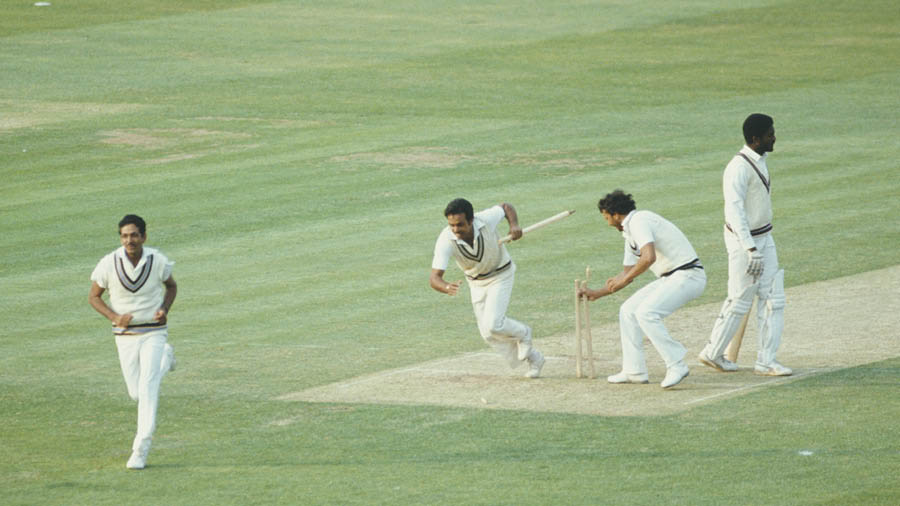
Victorious India players Yaspal Sharma and Roger Binny grab souvenir stumps as Mohinder Amarnath (l) runs off the field as West Indies batsman Michael Holding looks on after the 1983 Prudential World Cup Final victory against West Indies at Lords Getty Images
As Mohinder Amarnath wrapped Michael Holding on the pads and umpire Dickie Bird raised his finger — remember, no third umpire then — teenagers in senior classes in school had a first-of-its-kind, overpowering feeling. Till then, we had only heard of such a feeling from our elders who had witnessed India getting Independence on the midnight of August 15, 1947. For our generation, June 25, 1983, evoked the same feeling. It was as if India had somehow won freedom once again!
First street party at night
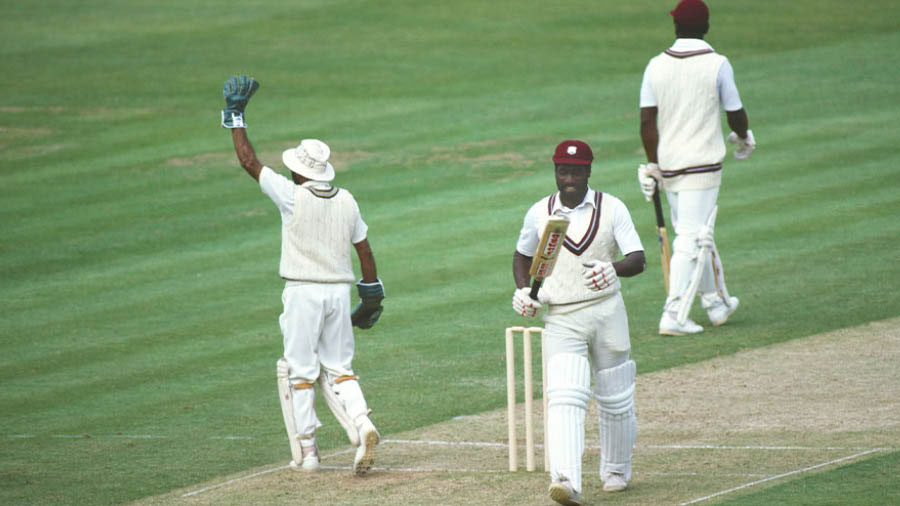
West Indies batsman Viv Richards leaves the field after being dismissed for 33 runs, caught by Kapil Dev (not pictured) off the bowling of Madan Lal (not pictured) as India wicketkeeper Syed Kirmani celebrates during the 1983 Cricket World Cup final Match between India and West Indies Getty Images
In pre-globalisation, pre-internet; pre-shopping mall 1983, stepping out of home at night was a strict no-no for students in most Bengali families. But social norms went out of the window that night. As thousands swarmed on the Lord’s green carpet and Kapil lifted the trophy, flashing his now-famous toothy smile, teenagers like us in Kolkata ran out to the road, not really knowing what else to do. Cars honked and many jumped in joy with the national flag. After a while, celebration processions started. Many of us returned home very late, but the elders hardly seemed to bother. That, perhaps, was the beginning of the dismantling of a glass ceiling.
‘Go now, son, and excel’
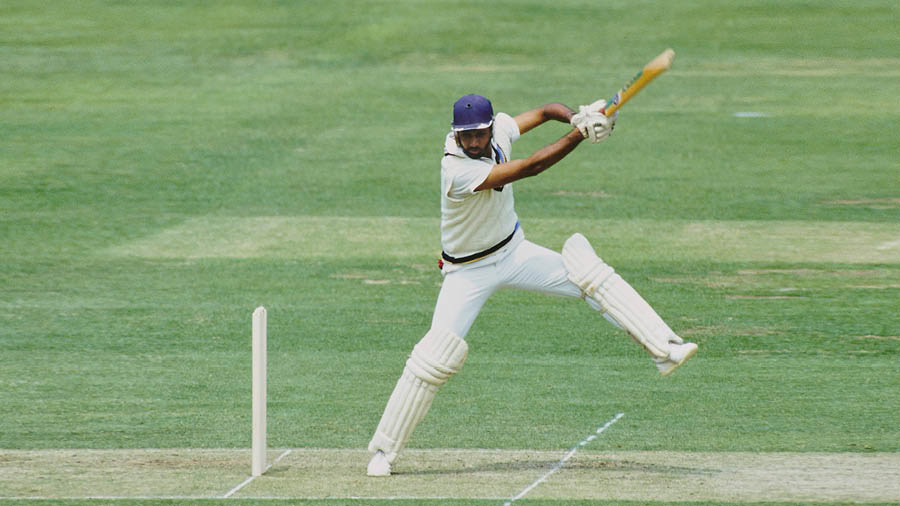
India Man of the Match Mohinder Amarnath plays a cut shot off the back foot to pick up runs during his innings of 26 during the 1983 Cricket World Cup final Match between India and West Indies at Lords Getty Images
Narottam Puri, who presented the match on Doordarshan — there was no cable TV and Doordarshan was taking the match feed from BBC — later said in an interview: “That one single upward movement of the finger (Bird declaring Holding LBW, making India the world champion), as if pointing upwards towards God, had created a signal for God to bestow on the Indians this power of ‘Go now, son, and excel.’”
That truly was the sentiment. Other landmarks, like the liberalisation of the economy in 1991, Sushmita Sen becoming Miss Universe in 1994 or Sunita Williams walking in space in 2006, also stirred up and bolstered that ‘India on top’ feeling, but for our generation, the seed was sown that summer evening at Lord’s.
Contrasting cricketing destinies
West Indies, which was the team to beat when India, defying all odds, did exactly that in 1983, lost to the Netherlands in the World Cup qualifiers almost to the day 40 years later, making their participation in this year's World Cup uncertain. It was almost like the continuation of a mourning protocol by a once-majestic team.
Though Clive Lloyd, Vivian Richards and company decimated India immediately after the 1983 World Cup debacle, winning all ODIs and Tests in India, Caribbean cricket started to decline gradually after the Lord’s loss. So much so that it is no longer considered a force in world cricket.
In contrast, Indian cricket grew in leaps and bounds after 1983, not only winning and reaching the finals of ICC tournaments, but also remaining in the pole position of Test cricket for years.
The most influential catch ever
Kapil running back and holding on to a miscued pull by the rampaging Richards, who was threatening to finish the match in no time, is perhaps the most influential catch ever on a cricket ground if one considers its overall impact. But for that catch, West Indies would probably have romped home and the cricketing hierarchy would have remained unchanged. That single win, and proactive cricket administrators like Jagmohan Dalmiya and Lalit Modi, transformed India into a cricketing superpower. So the next time you go gaga over an impossible boundary-line catch in an IPL match, remember the catch that made it possible.
